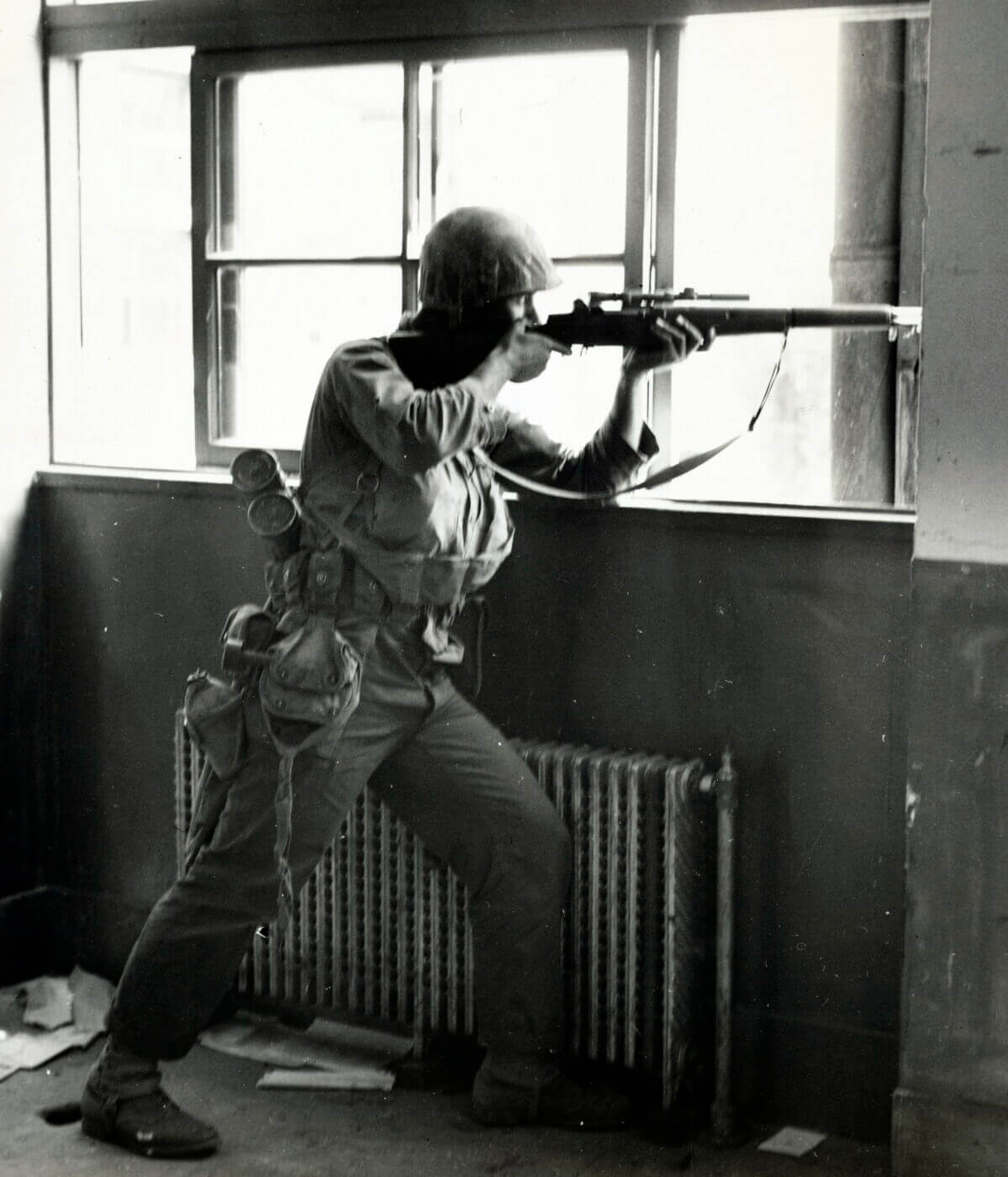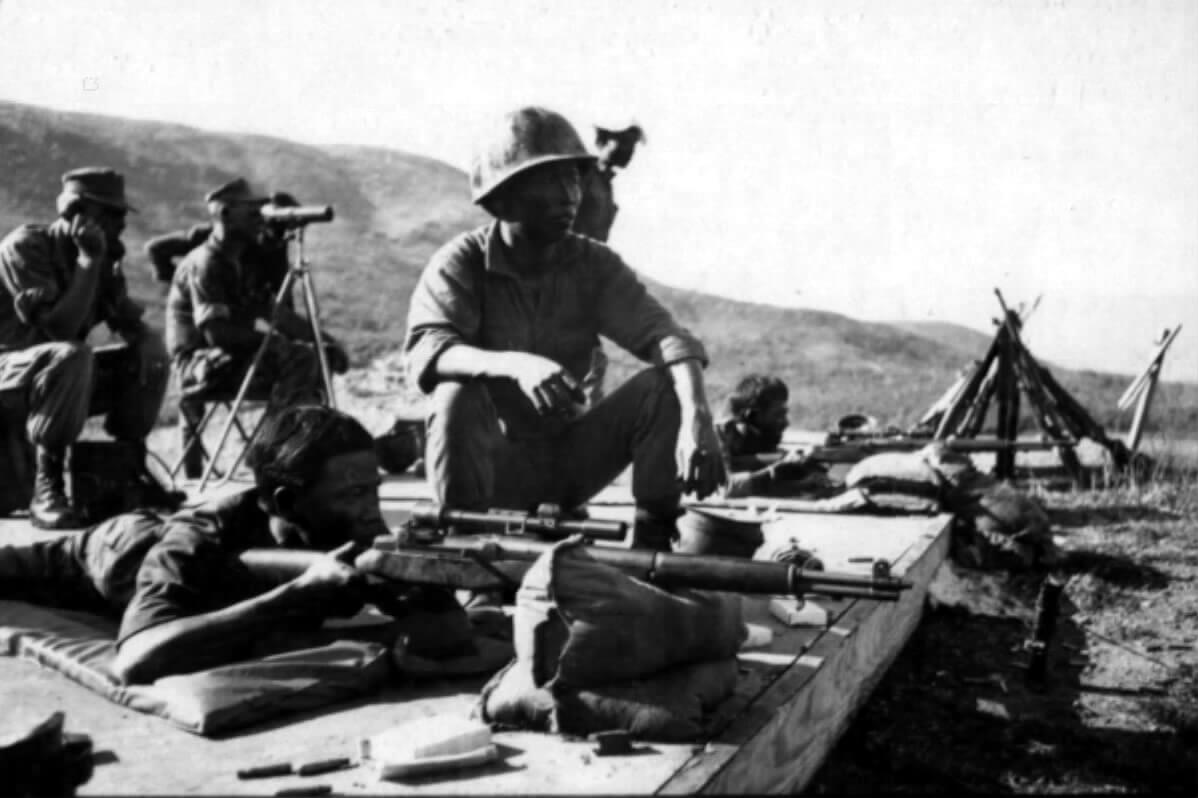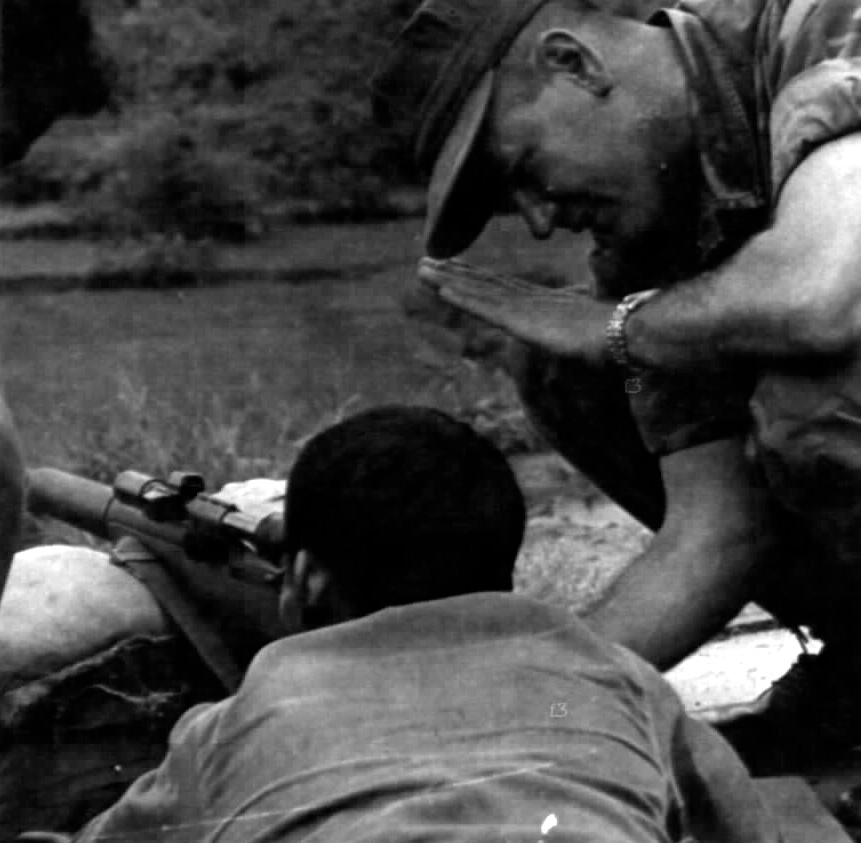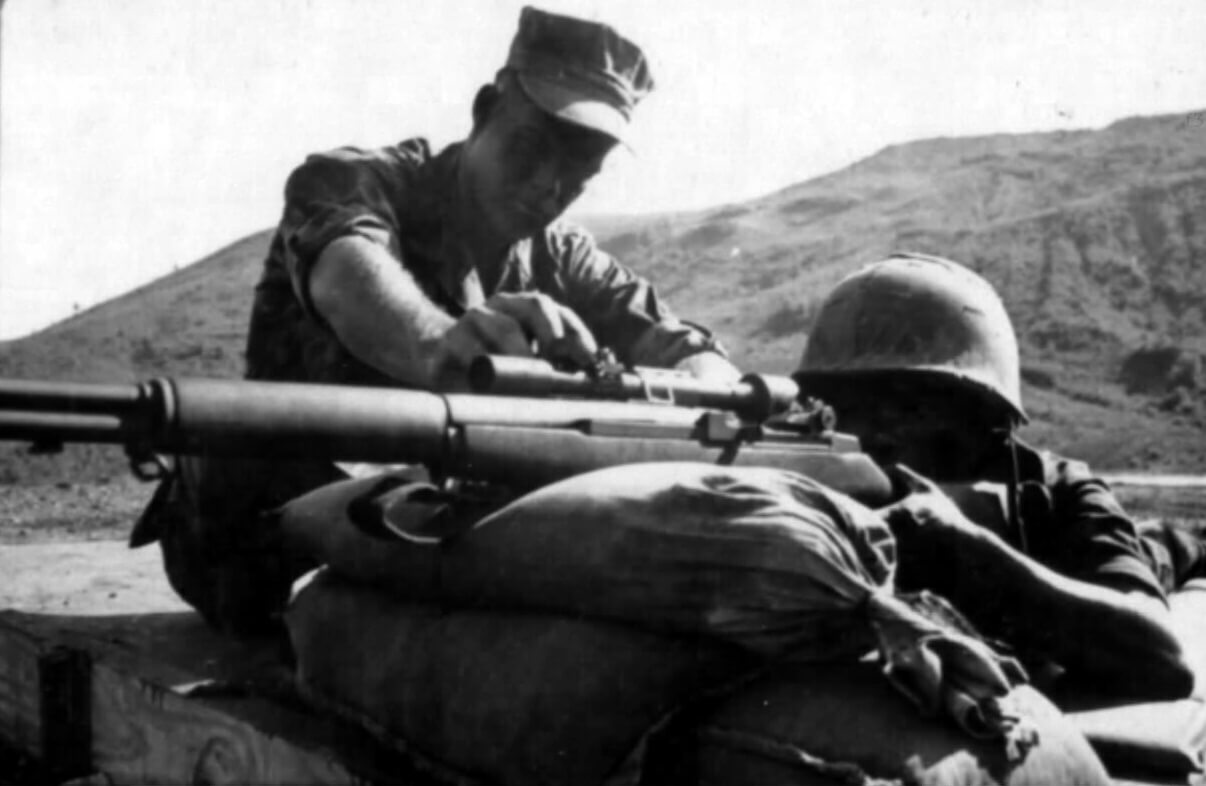Thesemi-automatic M1 Rifle,adopted in 1936, was still being developed as a sniper rifle.
In the meantime, U.S.
Ordnance turned to the simplifiedM1903A3 rifle, adopted in 1943, to create the straightforwardsniper rifle designated the M1903A4.
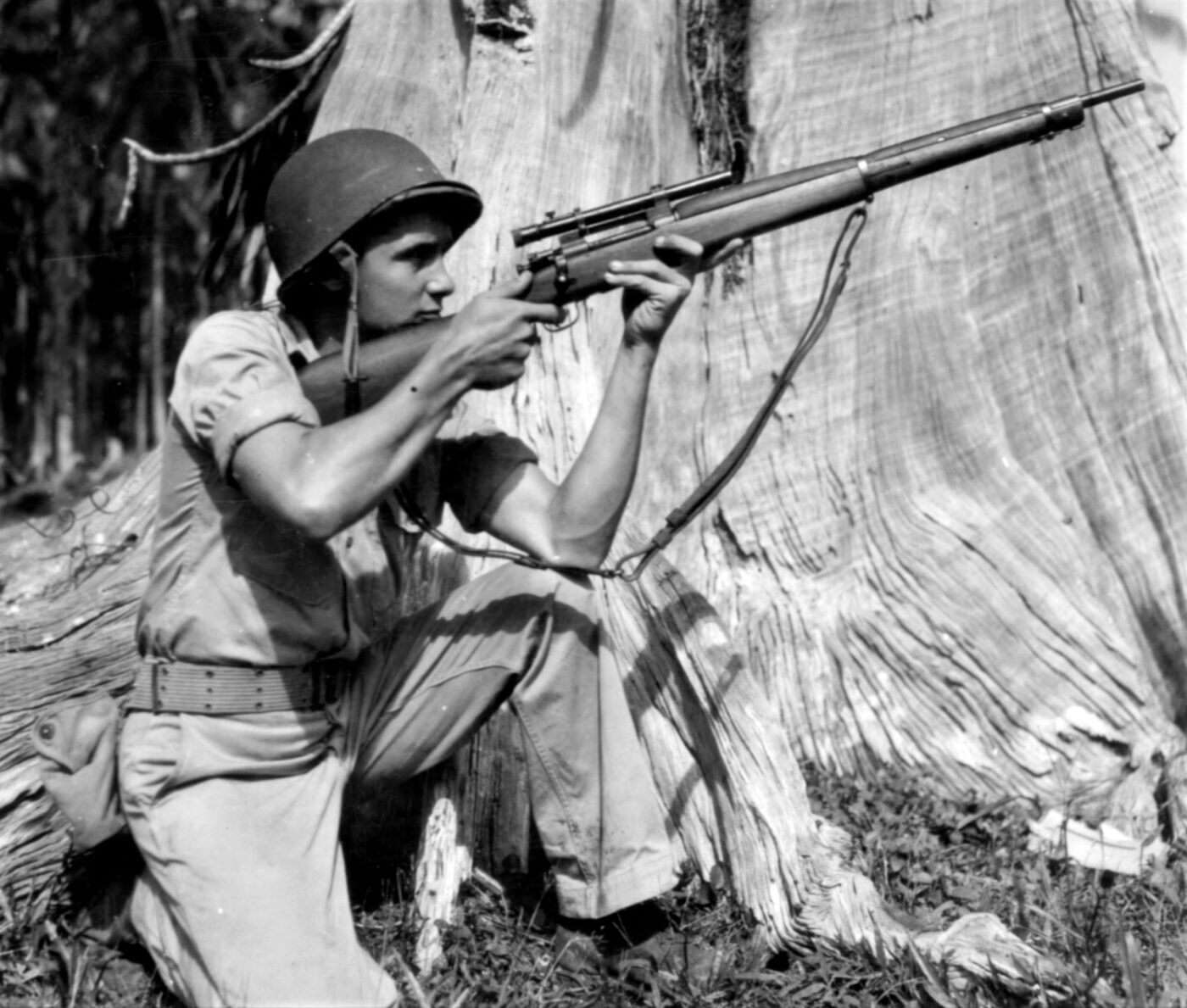
The commercial Weaver telescopic sight proved too fragile and prone to fogging in humid environments.
Perhaps a larger problem was the M1903A4 rifle was no more accurate than a standard M1903A3 battle rifle.
Some of these notions persisted until the M1 rifle finally entered combat in December 1941.
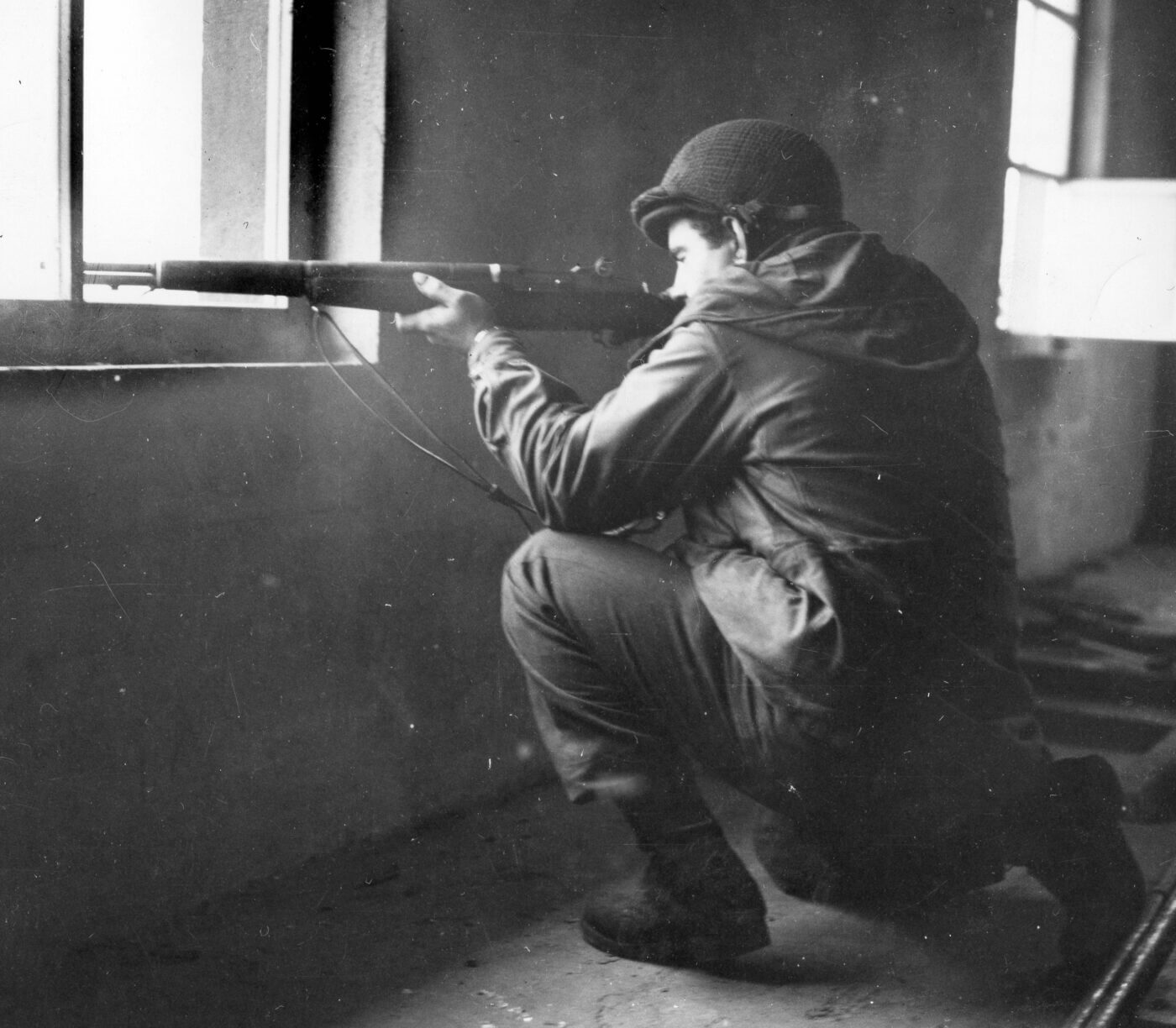
But, there were obstacles to overcome.
The M1s top-loading and top-ejecting action was a significant challenge.
When this proved fruitless, U.S.
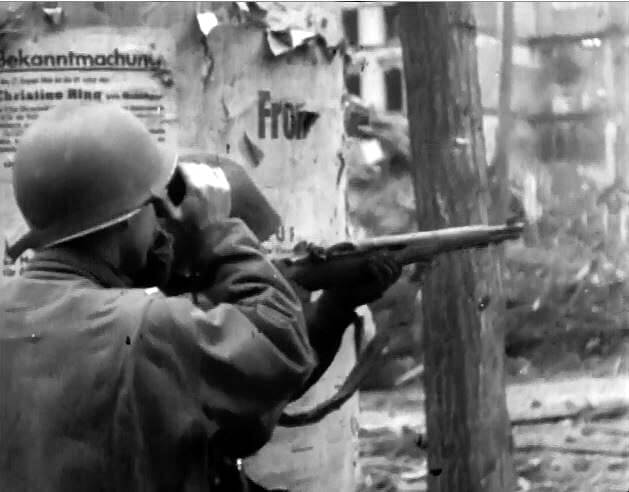
The whole arrangement was sturdy and could easily be removed while maintaining the zero of the scope.
During June 1944, the new rifle (designated M1E7) was adopted and standardized as the M1C.
Consequently, the M1903A4 sniper rifle became limited standard.
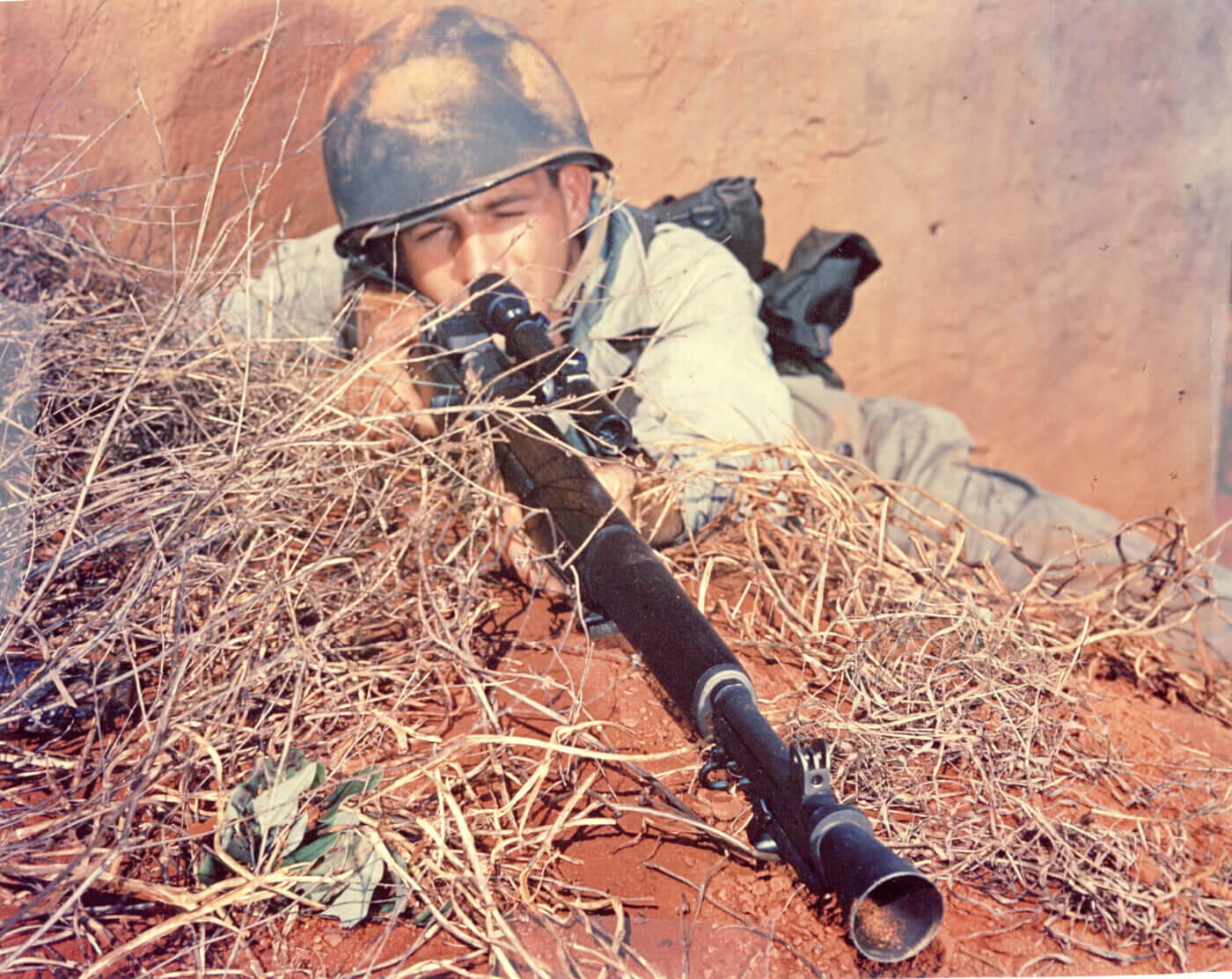
So far as is known,no M1C rifles were used in combat in Europe.
I have never found an image of an M1C in combat during World War II.
Of course, some exceptional marksmen scored kills at higher ranges.
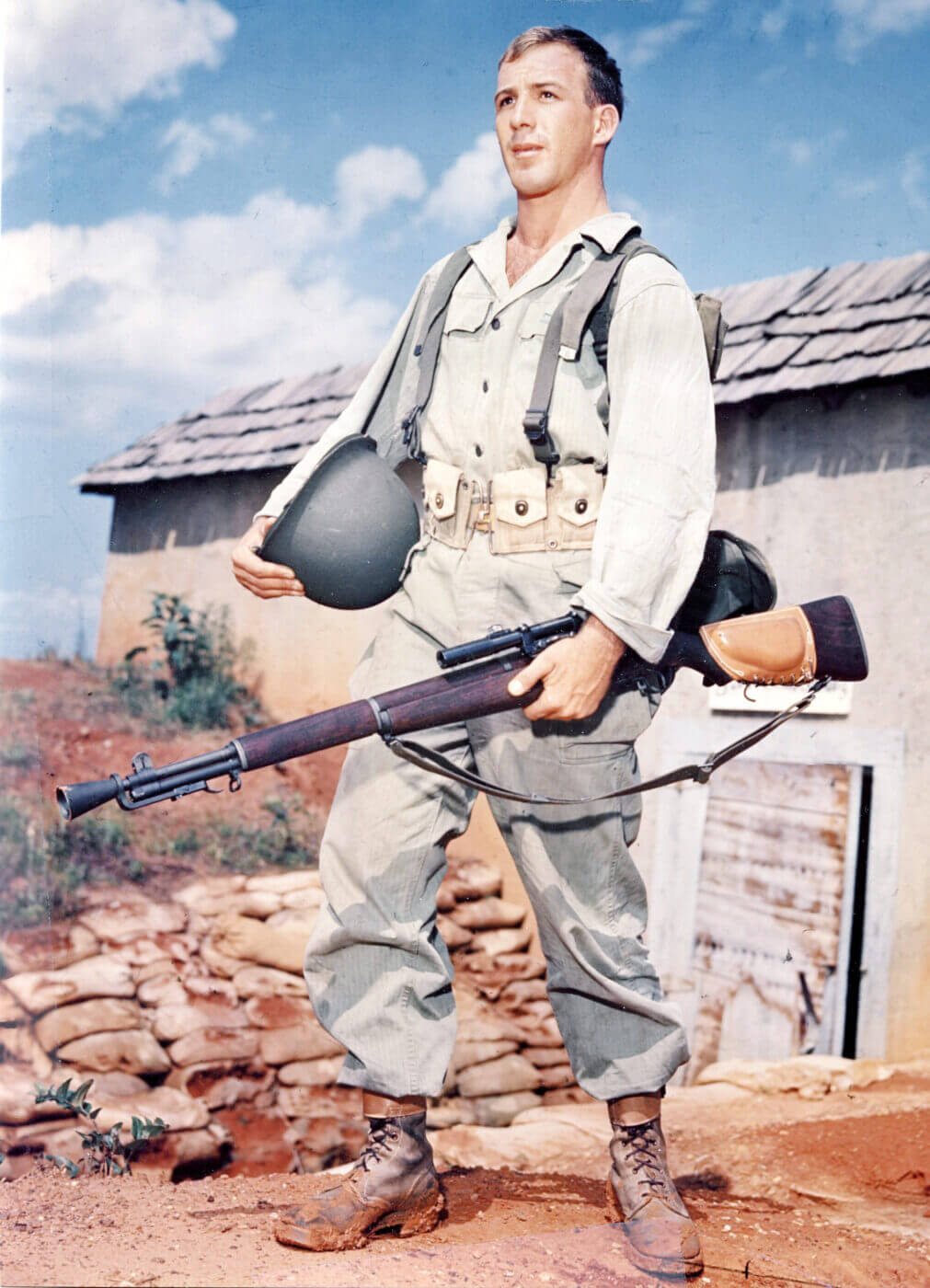
During the Korean War, the Marine Corps made some modifications to the M1C, particularly its telescopic sight.
The Marine Corps tested several types of telescopes and settled on a 4x design to be supplied by Kollmorgen.
The new Marine Corps sniper rifle was given the designation USMC 1952 which was sometimes referred termed MC 52.
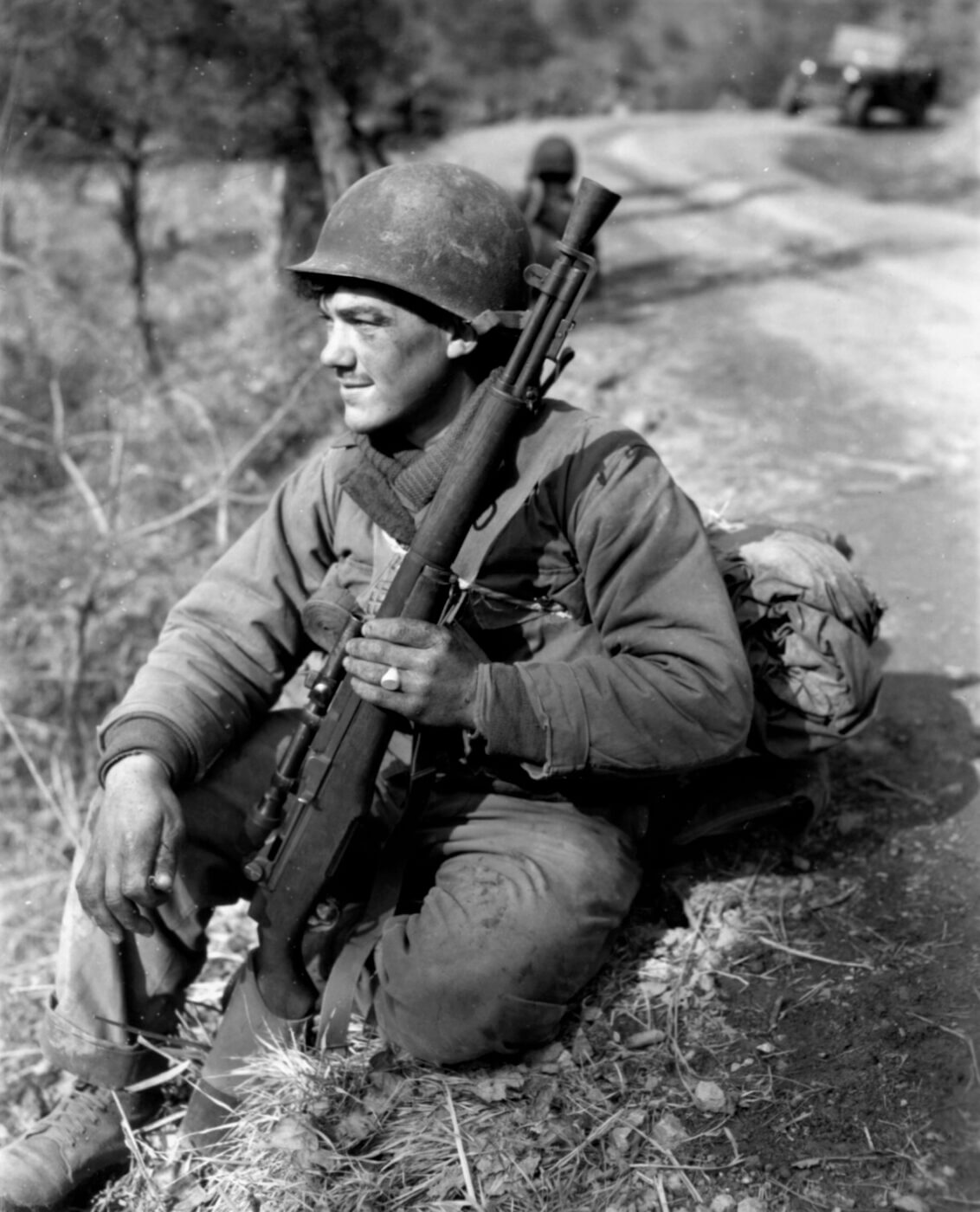
The designation MC-1 referred only to the scope and mount, and not the entire rifle.
Thus, reference to a MC-1 rifle is incorrect.
The M1Ds scope could also be mounted without removing the rifles iron sights.
